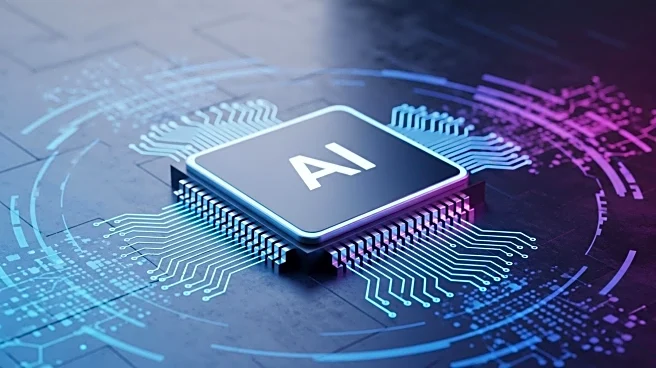What's Happening?
OpenAI has announced a strategic partnership with AMD to deploy 6 gigawatts of AMD's Instinct graphics processing units to power its AI infrastructure. The deal includes a warrant allowing OpenAI to acquire up to 10% of AMD, highlighting the deepening alliance in the AI hardware race. This partnership follows OpenAI's $100 billion pact with Nvidia, underscoring the increasingly circular nature of AI's corporate economy, where capital, equity, and compute orbit among a handful of firms building and powering the technology.
Why It's Important?
The partnership between OpenAI and AMD reflects the growing importance of strategic alliances in the AI industry. As AI technology continues to evolve, companies are forming partnerships to leverage resources and expertise, driving innovation and competitiveness. The circular nature of AI's corporate economy highlights the interconnectedness of firms in the industry and the potential for strain if any link in the chain weakens. The partnership underscores the significance of collaboration in advancing AI technology and maintaining industry expectations.
What's Next?
The ongoing AI arms race may lead to further strategic partnerships and collaborations as companies seek to enhance their capabilities and maintain competitiveness. The interconnectedness of firms in the AI industry may prompt discussions about the sustainability of the current corporate economy and the potential for strain if any link in the chain weakens. The partnership between OpenAI and AMD may influence future industry dynamics and shape public discourse about the role of technology in society.
Beyond the Headlines
The rise of AI technology presents ethical and cultural challenges, including concerns about privacy, data security, and the changing nature of work. As AI systems become more prevalent, there may be a need to address these issues through regulation and public policy. The broader societal implications of AI, including its impact on economic inequality and social cohesion, may require new approaches to governance and economic policy.









